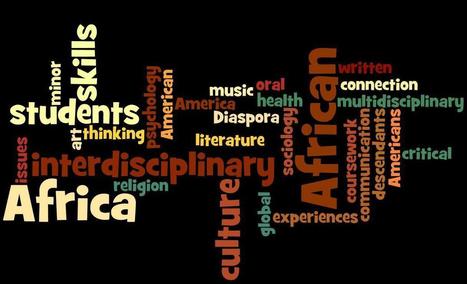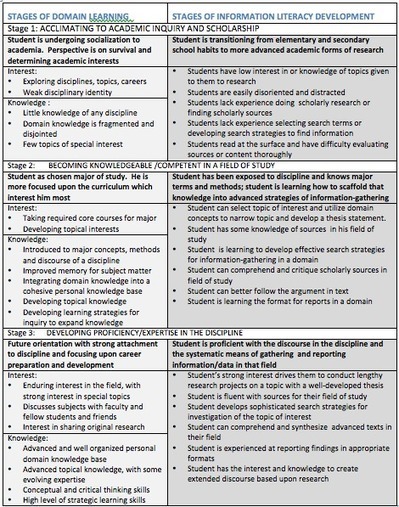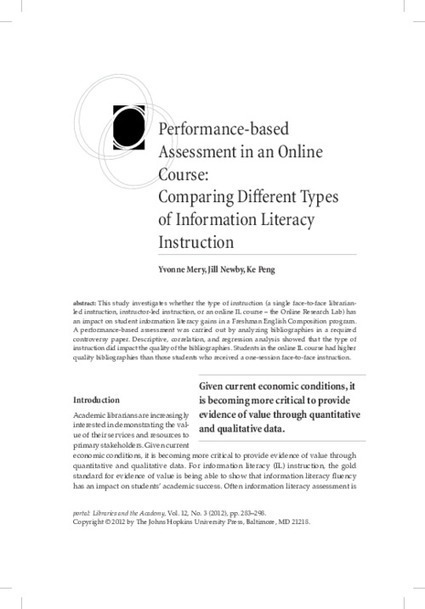Today there are opportunities to integrate information literacy into interdisciplinary fields such as Ethnic Studies including African American Studies. According to the Encyclopedia of the World of Sociology, “African American Studies is an academic discipline that focuses on the cultural, political, economic, religious, and social development of black Americans. First established in American universities in the late 1960s, African American Studies Departments were, in part, the product of student protests and the social climate created by the Civil Rights movement and the Black Power movement.” In this interview, Librarian A.J. Muhammad shares his experiences incorporating research and information literacy skills into his work at The New York Public Library’s Schomburg Center For Research Black Culture.
Research and publish the best content.
Get Started for FREE
Sign up with Facebook Sign up with X
I don't have a Facebook or a X account
Already have an account: Login
Literacy in a digital education world and peripheral issues.
Curated by
Elizabeth E Charles
 Your new post is loading... Your new post is loading...
 Your new post is loading... Your new post is loading...
|
|














